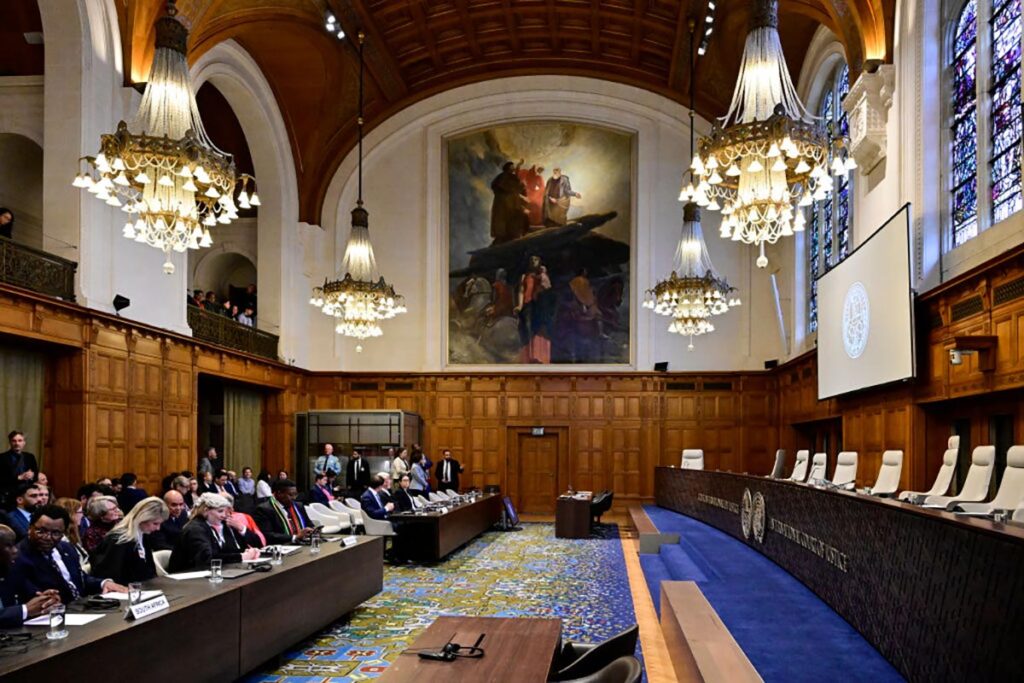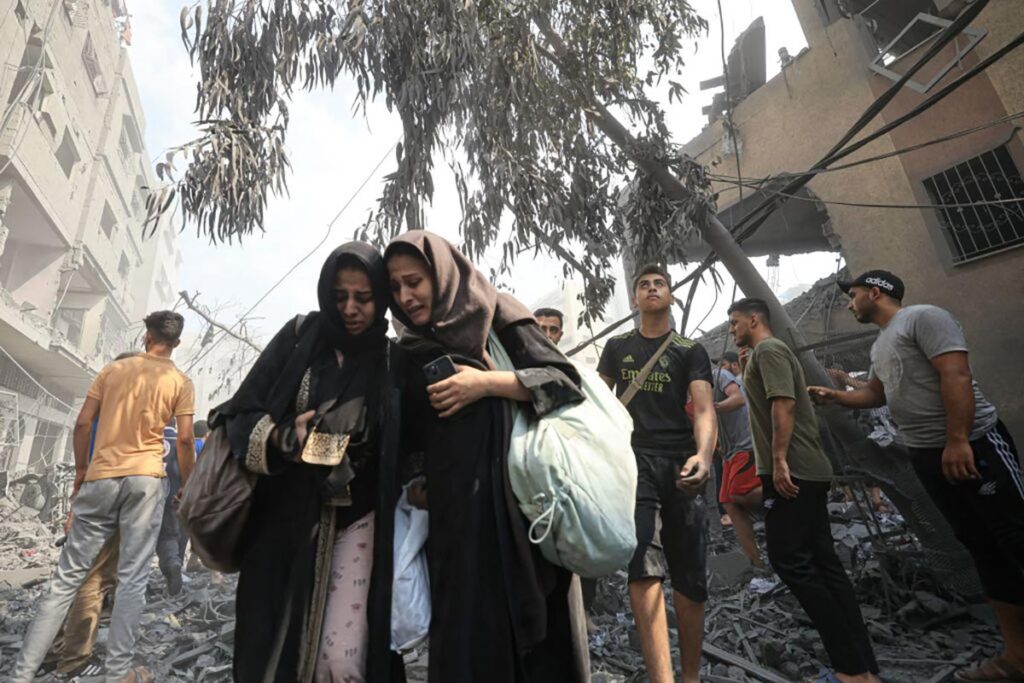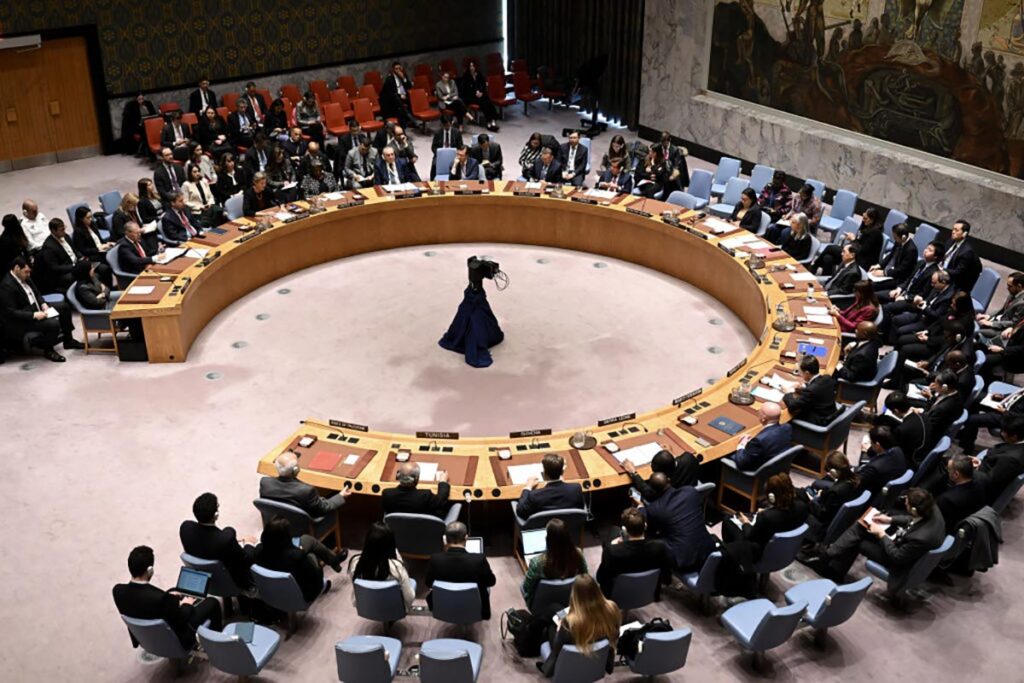
The International Court of Justice ordered Israel to halt its operations in Rafah that would risk the destruction of civilians and reopen the Rafah crossing in an announcement Friday.
The court issued its order in response to an appeal South Africa filed after the IDF began its ongoing operation in Rafah. The court also said Israel must allow “unimpeded access” into Gaza for any U.N. investigative bodies looking into allegations of genocide.

This comes as part of a trial that started in December when South Africa filed a complaint to the court accusing Israel of committing genocide in Gaza.
While the court hasn’t ruled on the question of whether the war in Gaza is considered to be genocidal, it has issued several orders for “provisional measures” in recent months, such as ordering Israel to increase humanitarian aid to Gaza and to act to better protect civilians.
Israel will need to present a report to the ICJ about its compliance with the order within a month.
What exactly do these International Court of Justice orders mean and what are the implications for Israel and the war in Gaza?
What is the International Court of Justice’s authority?

As the main court of the United Nations, the ICJ settles disputes between countries and gives advisory opinions on legal issues at the request of the U.N.
Unlike the International Criminal Court, which can prosecute individuals suspected of violating international law, the ICJ does not have jurisdiction over individuals. Only nations can be brought to trial at the ICJ.
Although the ICJ’s decisions are binding under international law, it doesn’t have any way to enforce its rulings. Countries seeking enforcement of ICJ decisions often turn to the U.N. Security Council, where enforcement actions can be more effectively implemented.
However, decisions in the council can be vetoed by permanent members like the U.S., Russia, China, France, and the U.K. Additionally, states may choose to impose sanctions based on non-compliance with ICJ rulings.
Why did the ICJ order Israel to stop its invasion of Rafah?
Previously, the ICJ had pledged that if the humanitarian crisis in Gaza deteriorated, it would issue Friday’s order.
The court emphasized that the areas to which Palestinians were being told to evacuate could not house nor provide necessary services to the hundreds of thousands of people fleeing Rafah.
The court also said that it had not received enough information about how Israel would meet those needs in the evacuation zone.
The ICJ recognized that Israel had evacuated civilians before entering Rafah, but said it was “not convinced” that these efforts were sufficient to alleviate risk.
What is Israel doing to protect civilians?

In its ruling, the ICJ focused mostly on statements by U.N. officials warning about the situation in Gaza — it barely referenced any of the measures Israel has taken to protect civilians.
John Spencer, the chair of urban warfare studies at the Modern War Institute at West Point, explained in March that Israel has “implemented more precautions to prevent civilian harm than any military in history — above and beyond what international law requires.”
For example, Israel routinely issues evacuation warnings before conducting military operations, directly contacts residents of buildings targeted for strikes to ensure evacuation, and establishes safe zones for civilians. According to Spencer, when the U.S. invaded Iraq in 2003, it didn’t provide such warnings for most battles.
IDF releases an audio recording of an officer in the Military Intelligence Directorate's Unit 504 — which specializes in HUMINT — speaking to a Gazan man, during which he describes how Hamas is preventing people from evacuating from the northern part of the Gaza Strip. pic.twitter.com/VgMJO3SzVo
— Emanuel (Mannie) Fabian (@manniefabian) October 26, 2023
Israel also created a map that split Gaza into alert zones to make evacuation orders easier to understand. However, some analysts criticized these maps as confusing, potentially complicating efforts for civilians to find safety.
Additionally, during intense combat phases in Gaza, the IDF has implemented daily humanitarian pauses, allowing civilians time to evacuate.
Israel also facilitates the delivery of humanitarian aid through four different crossings and a pier operated by the U.S. The IDF has posted photos showing large quantities of aid boxes at Gazan crossings, which they claim are still waiting to be distributed by humanitarian organizations.
While the IDF says the aid organizations aren’t doing their part to distribute the supplies, the aid groups contend that the conditions are too unsafe for collecting and distributing supplies and criticize Israel for not allowing sufficient aid to enter.
How does the civilian casualty count in Gaza compare to that in other conflicts?
The impact of war on civilians is profound, with the U.N. stating that nearly 90% of wartime casualties are typically civilians. In 2021, 140 million people in 24 countries were impacted by food insecurity caused by conflicts or wars.
Although U.N. Secretary-General António Guterres described the civilian death toll in Gaza as “unparalleled and unprecedented,” comparisons show that the civilian casualty ratio in Gaza is significantly lower than in many other conflicts.
For instance, the battle against ISIS in Mosul resulted in approximately 2.5 civilian deaths for every combatant, and according to the U.N., most recent wars resulted in a ratio of 9 civilian deaths for every combatant.
Comparatively, in Gaza, the ratio was about 1.5 civilians for every combatant from October 2023 to March 2024.
This is even more noteworthy when considering that in Gaza, tens of thousands of Hamas terrorists use the civilian population as human shields while hiding in hundreds of miles of tunnels, residential buildings, hospitals, and schools in a dense, urban environment.
How reliable are reported casualty figures from Gaza?
Controversy surrounds the casualty figures reported by Gaza’s Hamas-run Health Ministry, which have been questioned due to the source’s lack of credibility as a terror group.
Until recently, the U.N. reported that 70% of casualties were women and children, based on data from Hamas. However, in early May, the U.N. revised this percentage to 52%, explaining that it had shifted to using data solely from Hamas’s Health Ministry instead of its Government Media Office. This change in the source of the data was cited as the reason for the adjustment in reported casualties.
The Health Ministry’s numbers also don’t differentiate between combatants or civilians. Hamas regularly uses teenage combatants, meaning some of the casualties marked as children (anyone under 18) are likely to be combatants.
The Health Ministry also doesn’t specify how many casualties were caused by the IDF, labeling all such incidents as “Israeli aggression.” This means that casualties that resulted from misfired Hamas rockets or similar circumstances are included in the count.
How will U.N. member states respond to the ICJ’s ruling?

It’s not so clear, since the ICJ has no way of actually enforcing its rulings or orders.
South Africa could go to the U.N. Security Council to demand more effective measures, but the U.S. would almost definitely veto any such resolution. Member states could choose to sanction Israel for violating the ICJ order, but it’s not clear as of yet if any are planning to go that far.
Former Israeli Supreme Court justice Aharon Barak, who serves on the ICJ tribunal, criticized the court’s decision, arguing that it relied on social media and press releases instead of substantive evidence.
According to Barak, the ruling does not mandate a complete cessation of Israel’s operations in Rafah but requires the country to comply with international law. Barak argued that Israel is already adhering to these standards. Other justices, including those supporting the order, agreed that the order does not require Israel to completely halt its operations in Rafah.
What will Israel do in response to the ICJ ruling?
Even if the ruling increases international pressure, it’s unlikely that it will halt Israel’s operation in Rafah.
Israel’s Attorney General is reportedly exploring ways to continue these operations within the confines of the ICJ order.
On Thursday, IDF Spokesperson Rear-Adm. Daniel Hagari emphasized that Hamas is holding Israeli hostages in Rafah and the operation is crucial in retrieving the captives. He affirmed the IDF’s commitment to adhering to international law, stating that the country is “committed to operating in accordance with international law and will continue to keep that commitment.”
Hagari added that the IDF has been adjusting tactics throughout the war in Gaza in order to minimize harm to the civilians Hamas is hiding behind.
“Hamas terrorists are waging war while embedding themselves inside and under civilian areas in Rafah. Hamas wants Gazan civilians to be caught in the crossfire. We don’t,” Hagari said. “Our war is against Hamas, not against the people of Gaza.”
